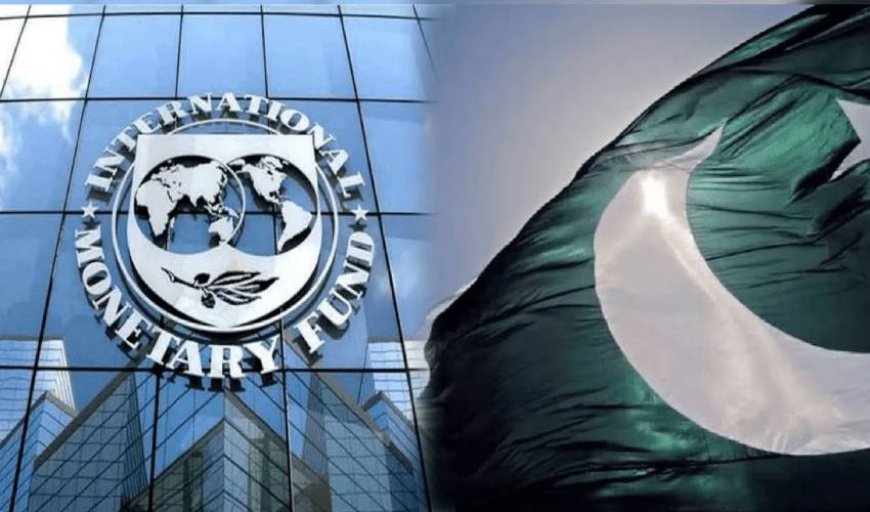IMF Approves Rs. 389 Billion for Pakistan’s Flood Relief Package
IMF approves Rs. 389 billion emergency relief package for Pakistan to support flood-affected areas, with conditions on governance, transparency, and reforms.

The International Monetary Fund (IMF) has formally approved a Rs. 389 billion flood relief package for Pakistan, granting the government permission to utilize emergency funds to support rehabilitation efforts in disaster-hit regions. According to official sources, the package will be introduced under the Prime Minister’s Relief Program and will focus on providing immediate financial aid to flood-affected families while supporting reconstruction activities.
Provincial Damage Assessments
Preliminary assessments presented to the IMF delegation highlighted the widespread impact of the floods:
-
Khyber Pakhtunkhwa (KP): Early reports estimated damages between Rs. 40 and Rs. 50 billion, with final losses adjusted to Rs. 30 billion.
-
Sindh: The provincial government reported Rs. 40 billion in preliminary damages, with officials noting that numbers could rise once a detailed survey is completed.
-
Punjab: Discussions with Punjab officials are scheduled, with the province expected to share its damage and recovery estimates in the coming days.
The IMF delegation reviewed these figures during a series of meetings with federal and provincial representatives, stressing the importance of accurate reporting and transparent allocation of funds.
Conditions Linked to Relief Package
While approving the relief funds, the IMF has also tied the package to strict governance and reform measures. Among the key demands:
Publication of Corruption and Diagnostic Assessment Report:
The Fund has insisted on immediate public release of the long-awaited report to ensure transparency. However, the Ministry of Finance has requested more time, citing the sensitive nature of the findings.
Disclosure of Assets by State Institutions:
The IMF has called for public disclosure of assets held by military officials, judicial officers, and civil bureaucracy, arguing that transparency is essential for good governance and accountability.
Institutional Autonomy:
Full independence for the Auditor General of Pakistan has been demanded, enabling the institution to function without political or bureaucratic interference.
Reforms in Tax Policy and Administration:
The IMF wants a clear separation of tax policy-making from the Federal Board of Revenue (FBR) to improve efficiency, reduce political influence, and strengthen the revenue system.
Discussions with Provincial Governments
During meetings with provincial officials, the IMF delegation underscored the need for budget surpluses, accountability, and timely reporting. Provinces were asked to submit final loss assessments and recovery plans to help ensure that the Rs. 389 billion package is utilized effectively.
The focus of the discussions was not only on compensation for affected families but also on long-term rehabilitation projects, including reconstruction of infrastructure, restoration of agricultural land, and rebuilding of schools and hospitals damaged by floods.
FBR Transformation and Compliance Measures
The government briefed the IMF on the Federal Board of Revenue’s (FBR) transformation roadmap, which includes steps to strengthen tax compliance, reduce leakages, and enhance digital monitoring. Requests were also made for amendments in the Corruption and Diagnostic Assessment Report to reflect progress made in recent months.
IMF’s Broader Expectations
The IMF has consistently emphasized that Pakistan’s economic recovery depends on structural reforms and transparency in governance. In the latest round of discussions, the Fund reiterated that:
-
Accountability and transparency must be prioritized in relief disbursements.
-
Fiscal discipline should be maintained to prevent further strain on public finances.
-
Provincial and federal coordination is critical to ensure equitable distribution of funds.
-
Reforms in the energy sector and tax system remain essential for stabilizing the economy in the long run.
Importance of the Relief Package
The Rs. 389 billion package is expected to provide much-needed relief to millions of flood victims across Pakistan. The funds will be directed toward:
-
Immediate cash assistance for families who lost homes and livelihoods.
-
Rehabilitation of agriculture, including provision of seeds and fertilizers to farmers.
-
Infrastructure rebuilding, with focus on roads, bridges, and schools damaged by floods.
-
Healthcare facilities, especially in rural areas where medical centers were destroyed.
Economists believe the package, if implemented transparently, could significantly reduce the financial burden on affected communities while boosting local economies in flood-hit regions.
Despite the IMF’s approval, the success of the relief package depends on efficient execution and transparent management. Critics have raised concerns about past instances of mismanagement in disaster aid distribution. Civil society groups are urging the government to establish independent monitoring committees to oversee the utilization of funds.
Monitoring of Politically Exposed Persons (PEPs):
The Fund has also emphasized stronger compliance mechanisms for PEPs, requiring detailed scrutiny to curb corruption and ensure fair application of tax laws.

 Ateeq Ur Rehman
Ateeq Ur Rehman